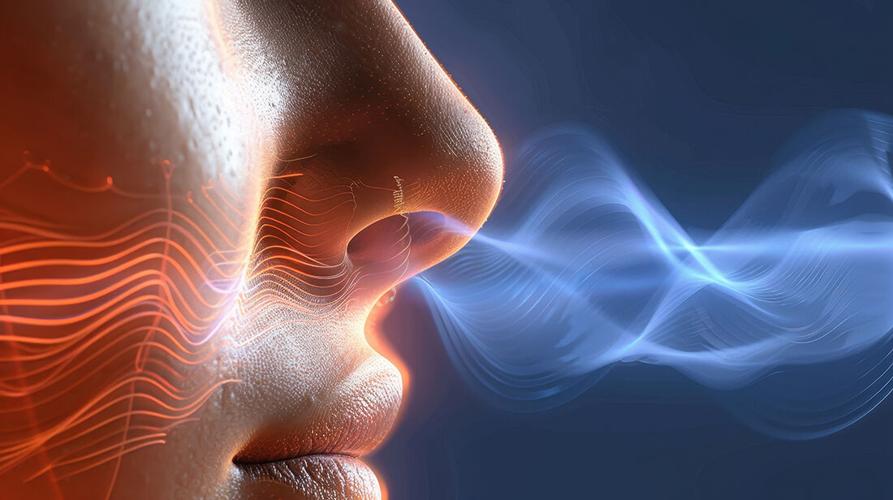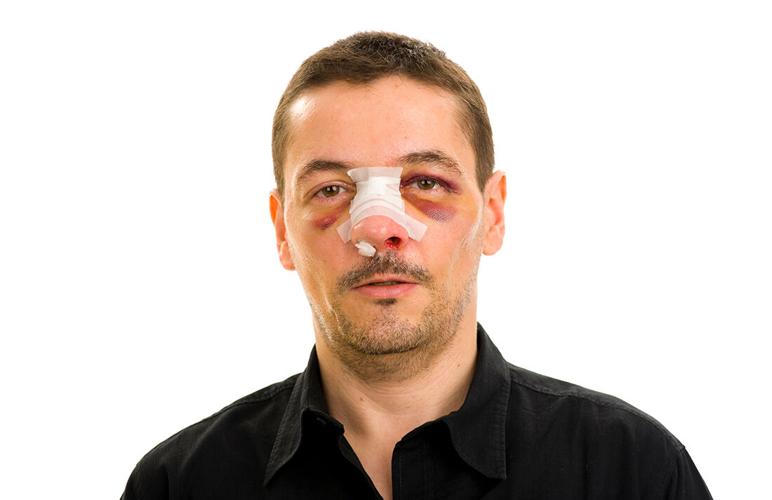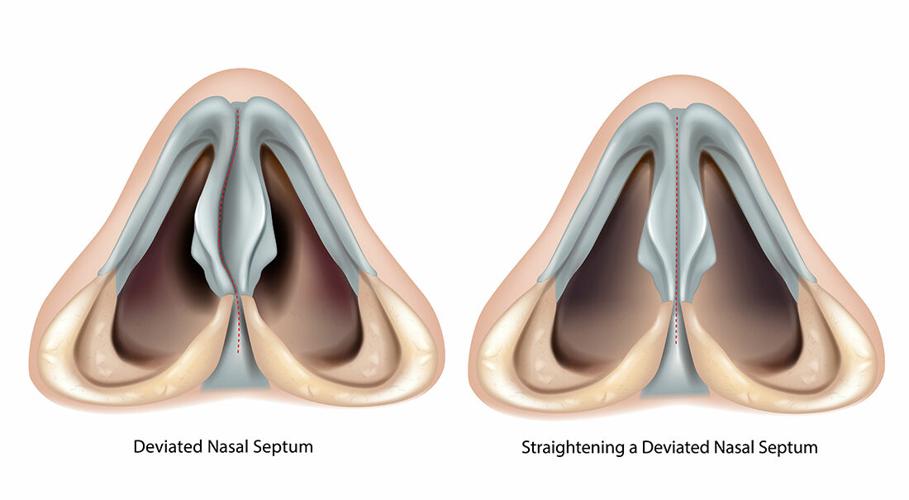Why, it’s your nose, silly!
Aside from being a favorite dad joke subject, the human nose really is a pretty remarkable structure and performs a variety of functions beyond the sense of smell. There are actually several functions that the nose performs that are vital to overall health and well-being. Of course, the nose’s most famous function (and the root of many of this article’s bad puns) is olfaction, or the sense of smell. The ability to smell is crucial for detecting environmental hazards and enhancing the flavor of foods. The olfactory receptors that are responsible for smelling are located within the nasal cavity. Additionally, the nose plays a critical role in breathing. It obviously serves as the main airway for breathing but the reason this passageway is preferred over the mouth for respiration is that incoming air is warmed, moisturized, and filtered before it arrives in the lungs. The nasal passages are lined with mucous membranes and tiny hairs called cilia, which trap dust, pathogens, and other particles, preventing them from entering the respiratory system and causing infections. Weirdly, the nose also contributes to speech and sound resonance that influences the quality and tone of one’s voice. This is exactly how your mom always knows when you have a cold when she talks to you on the phone. Moms are so nosey.
The nose knows…
On occasion, nasal or olfactory symptoms can be indicators of larger problems. Anosmia is the clinical name for loss of sense of smell. Besides the obvious hardship of becoming that person in the office wearing too much cologne or perfume because you’re nose-blind, a person’s sense of taste is dramatically diminished as well. Aside from the obvious loss of food-enjoyment, there is an inherent health risk by not being able to taste or smell that rancid milk or meat you’re about to partake in. Smell also allows us to detect smoke before we see or feel fire and it may alert us to the presence of a dangerous chemical or gas before it has time to harm us. The moral of the story is it’s always good to lead by a nose.
So, what are the reasons we lose our sense of smell? If you remember the dark days of the COVID-19 pandemic, the warning we all received about losing sense of smell as a harbinger of infection will stir-up negative emotions. The fact is many viral infections can disrupt olfactory neurosensory function through various mechanisms. Allergies can cause nasal and sinus inflammation that affects our smell as well. Traumatic brain injury can certainly impact smell, as can a variety of neurological diseases. Natural aging also can result in a decline in a person’s scent acuity, especially after the age of 60. There is also a strong indicator of anosmia being an early symptom of neurodegenerative diseases, especially Alzheimer’s and Parkinson’s. If you or a loved one suffers from an unexplained loss of smell, it is a good idea to have this assessed by a primary care provider or ear, nose and throat (ENT) specialist. While it is always important to go with your gut, the nose often knows first because it is impeccable at sniffing out trouble. This is why I named my nose Nostril-damus.
Yikes. My wife and kids are right; I really do have a bad-scents-of-humor.
I broke my nose so my dad told me to get a new one at the ol-factory …
Yes, it’s as plain as the nose on your face… Nasal trauma stinks. The nose, being the scenter of your face (see what I did there?) can easily attract accidental injury from sports, motor vehicle mishaps, and falls. Aside from possible disfigurement, unevaluated and untreated nasal trauma can result in internal structural damage (like a nasal septum deviation) which can result in breathing impediments. Humans are meant to be what is known as obligate nose breathers, for the reasons identified above. When we have nasal obstructions, we default to becoming obligate mouth breathers. Persistent mouth breathing results in suboptimal respirations and can lead to dry mouth, dental carries/cavities, gingivitis, tonsillar and soft palate inflammation, and snoring. Soft tissue inflammation in the posterior mouth is a common cause of obstructive sleep apnea, which is characterized by the stopping and starting of normal breathing cycles during sleep that disrupts a normal sleep pattern resulting in a chronic sleep deprivation state. Sleep apnea sufferers will report to feeling tired throughout the day, even after a full night’s sleep. If this sounds like you, or someone you know, a visit with an ENT or sleep specialist would be highly recommended.
Don’t pick your nose if it bleeds easily. If you do, you’ll be caught red-handed.
Nose bleeds in the interior of Alaska are an all-too-common occurrence for many. The dry climate, especially in winter months, can lend itself to cracked tissues in the nasal passages that can bleed. Usually, these bleeds are from the front of the nose and can be managed with conservative measures like direct pressure and packing. If the bleed is persistent or causing dizziness or vomiting, emergency treatment is advised. This may be a posterior nosebleed that can be challenging to control with conventional methods and may present a significant medical emergency.
Prevention of these common nosebleeds will be centered around keeping the ambient air in the home humid with a clean humidifier running, especially in the bedroom. Additionally, daily application of a thin layer of petroleum jelly with a cotton swab can help keep these membranes moist and may limit the tiny vessels from cracking. And, of course, stop picking your nose. My dad always told me, “You can pick your friends, and you can pick your nose, but you can’t pick your friend’s nose.” While this is sound advice, I generally recommend against picking any nose.
My nose runs and my feet smell. I must be built upside down.
I just had to insert one more of my father’s gems; that guy nose the best jokes.
Overall, the human nose is an essential organ with multiple functions that go beyond just the sense of smell. Its contribution to respiratory health, olfactory perception, and communication highlights the complexity and importance of this often-underappreciated feature of human anatomy. At the same time, the nose may contribute just as much to emotion and memory as it does to physical attributes. Speaking for myself, the power of smell can act as a time machine that will instantly transport me back to any given moment in my past. With a single whiff of some unknown compound of smells, I’m a wide-eyed kid again watching a James Bond movie with my grandfather in the basement of the house that my mother grew up in. Or I’m a nervous teenager with butterflies in his stomach re-smelling the perfume of a high school crush. Every one of us can relate to a smell that invokes a powerful emotion. No other sense can instantly stir-up such complex feelings of comfort, sentiment, dread, anxiety or love. So, take care of your honker. It is deserving of far more attention than it gets.




















